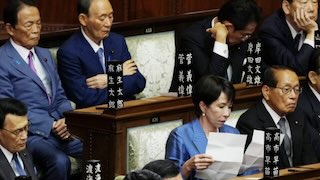Aug 02 (taiwannews.com.tw) - Japan's average minimum wage is set to rise at a record pace this year, the government said on Tuesday, a positive development for Prime Minister Fumio Kishida's efforts to cushion households from global commodity inflation.
The health ministry formally approved a recommendation by its sub-committee that the average minimum wage for the current fiscal year ending in March 2023 be raised by 31 yen, or a record 3.3%, from the current level to 961 yen ($7.30) per hour, two ministry officials told Reuters.
Kishida is counting on the hike to drive his flagship policy of distributing wealth to broader segments of the population to put Japan's economy on a sustainable recovery path.
The sub-committee's recommendation, which is made each year and serves as the nationwide standard for minimum wages, was approved as it was made by the wider committee comprising management and labour union representatives as well as academics.
The decision on minimum wages followed annual spring negotiations, which saw big firms offer to raise wages by over 2% to compensate employees for cost-push inflation.
Minimum wages are set by the government unlike the spring wage negotiations, in which salaries are directly set between corporate management and labour unions. ...continue reading
Source: 日テレNEWS















